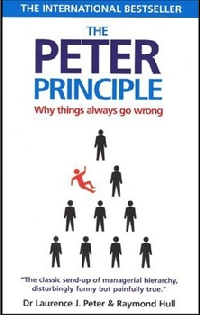 Mark the dates of March 26-28, 2012 on your calendars as we are about to witness one of the most titanic legal struggles in this century, the fight over the Patient Protection and Affordable Care Act (ACA), better known as "Obamacare," which went into effect March 23rd, 2010. Actually, we won't be able to see much of anything as cameras are not allowed in the Supreme Court proceedings. However, I can assure you it will be extensively covered by the media as this is a major constitutional issue. And you better pay attention as the decisions made here will have long term implications on our country.
Mark the dates of March 26-28, 2012 on your calendars as we are about to witness one of the most titanic legal struggles in this century, the fight over the Patient Protection and Affordable Care Act (ACA), better known as "Obamacare," which went into effect March 23rd, 2010. Actually, we won't be able to see much of anything as cameras are not allowed in the Supreme Court proceedings. However, I can assure you it will be extensively covered by the media as this is a major constitutional issue. And you better pay attention as the decisions made here will have long term implications on our country.
In reality, there are three separate cases which will be heard individually, which is somewhat strange as they are all closely related. The stakes for this are high too as it will pit the President and the Democrats, the proponents of the bill, against the Republicans, the bill's opponents. The outcome will undoubtedly play a role in the outcome of the November elections. Nonetheless, both sides will want to make sure "their people" are present on the bench, both liberal and conservative. Three justices may have to be recused though:
Justice Sonia Sotomayor worked for the president and helped write the legal strategy used for the court challenges. In other words, she is already intimate with how arguments will be refuted by the president's people.
Justice Elena Kagan is a long-time cheerleader of the bill and served as Solicitor General during the Congressional health care debate.
Justice Clarence Thomas' wife is an active opponent of the bill but he, himself, has no direct involvement.
Of the three, Sotomayor and Kagan are more intimate with the bill and played an active roll in its passage. Nonetheless, it is doubtful any of the judges will recuse themselves as the stakes are too high.
Representing the president's side are the departments of Health and Human Services, Treasury, and Labor, along with their Secretaries, collectively "the government."
Their opponents are 26 states with Florida at the forefront, private individuals Mary Brown and Kaj Ahlburg, and the National Federation of Independent Business (“NFIB”). Both Ahlburg and Brown are fighting for the right to remain uninsured.
The three cases include:
To be argued March 26-27 -
Department of Health and Human Services, et al. vs. the State of Florida, et al. (11-398)
Basically, the government is trying to appeal a district court's ruling that the individual mandate (to purchase insurance) is unconstitutional and that it cannot be singularly severed from the act.
To be argued on March 28th -
National Federation of Independent Business, et al. vs. Kathleen Sebelius, Secretary of Health and Human Services, et al. (11-393)
Is intended to reverse the Eleventh Circuit’s judgment on the severability issue where they concluded the individual mandate can be severed from the remainder of the act.
The State of Florida, et al. vs. the Department of Health and Human Services, et al. (11-400)
First, questioning Congress's authority to expand the eligibility for Medicaid of individuals up to 133% above the poverty level; Second, questioning the constitutionality of establishing penalties for large employers that do not offer adequate health insurance coverage to full-time employees, and; Third, whether other provisions of the Act could be severed from the Act’s minimum coverage provision if that provision were found to be unconstitutional.
In a nutshell, the case needs to answer the following questions:
1. Does the Commerce Clause (Article I Section 8 Clause 3 of the Constitution) grant Congress the power to require individuals to maintain a minimum level of health insurance or pay a tax penalty?
2. Did Congress exceed its enumerated powers and violate principles of federalism when it pressured States into accepting conditions that Congress could not impose directly by threatening to withhold all federal funding under Medicaid, the single largest grant-in-aid program?
3. Is the suit brought by respondents to challenge the minimum coverage provision of the Patient Protection and Affordable Care Act barred by the Anti-Injunction Act, 2 U.S.C. 7421(a)?
4. Is the individual mandate severable from the ACA?
(Source: Oyez)
My concern is how Obamacare, if sustained, will affect the sheer nature of capitalism by forcing people to purchase products they do not necessarily want. It is also an expression of more federal control over the states by withholding Medicaid. In other words, who should have more authority, the federal government or the states?
Regardless of the decision, it will be a "Win-Win" decision for the Republicans. If the Supreme Court overturns Obamacare, it will be a major defeat for the president and will mean we have to go back to the drawing board. However, if the Supreme Court sustains Obamacare, it will create a major uproar that will likely drive the Democrats out of office. Either way, the Republicans win.
Fasten your seat belts, it is going to be a bumpy ride.
Keep the Faith!
Note: All trademarks both marked and unmarked belong to their respective companies.
 Tim Bryce is a writer and the Managing Director of M. Bryce & Associates (MBA) of Palm Harbor, Florida and has over 30 years of experience in the management consulting field. He can be reached at timb001@phmainstreet.com
Tim Bryce is a writer and the Managing Director of M. Bryce & Associates (MBA) of Palm Harbor, Florida and has over 30 years of experience in the management consulting field. He can be reached at timb001@phmainstreet.com
For Tim's columns, see:
http://www.phmainstreet.com/timbryce.htm
Like the article? TELL A FRIEND.
Copyright © 2012 by Tim Bryce. All rights reserved.
 Are there any Industrial-Organizational Psychologists out there anymore? After looking over the U.S. Bureau of Labor Statistics, the numbers don't look very promising. Pity; It's a useful profession aimed at studying human behavior in relation to the work environment and making recommendations for improving productivity. I'm afraid the position has diminished and defaulted to individual managers who are not properly trained to be office shrinks.
Are there any Industrial-Organizational Psychologists out there anymore? After looking over the U.S. Bureau of Labor Statistics, the numbers don't look very promising. Pity; It's a useful profession aimed at studying human behavior in relation to the work environment and making recommendations for improving productivity. I'm afraid the position has diminished and defaulted to individual managers who are not properly trained to be office shrinks. I've never been good at politics and I believe it is due to the nature of my job which is to tell people what is wrong with their systems and management. I'm paid to be brutally frank with companies which is not exactly an endearing trait. My job is to tell them the whole truth, not just what they want to hear. I'm polite and professional in how I present the facts, but I am certainly not a politician. I cannot afford to be. No doubt I would flop if I were to run for public office, even if it was for nothing but dog catcher. I would likely say something matter-of-factly and thereby step on the toes of someone in the process, regardless of how right I was.
I've never been good at politics and I believe it is due to the nature of my job which is to tell people what is wrong with their systems and management. I'm paid to be brutally frank with companies which is not exactly an endearing trait. My job is to tell them the whole truth, not just what they want to hear. I'm polite and professional in how I present the facts, but I am certainly not a politician. I cannot afford to be. No doubt I would flop if I were to run for public office, even if it was for nothing but dog catcher. I would likely say something matter-of-factly and thereby step on the toes of someone in the process, regardless of how right I was. Have you ever seen a guy in an office who couldn't complete a project even if his life depended on it, regardless of the amount of time afforded him? You know the type, an arm chair quarterback who is quick to take credit when the opportunity presents itself and blames others when things go awry. Such a person's management style is perhaps best described as reactive as opposed to proactive. The truth is, everybody knows he is in over his head and grows tired of his excuses. Such is Barrack Obama who is simply floundering as president. To listen to his side of the story, he would have us believe he had nothing to do with the problems of the economy, the national debt, unemployment, the growing powder keg in the Middle East, etc. Not only does he consider himself blameless, but goes so far as to portray himself as the victim of the work of others.
Have you ever seen a guy in an office who couldn't complete a project even if his life depended on it, regardless of the amount of time afforded him? You know the type, an arm chair quarterback who is quick to take credit when the opportunity presents itself and blames others when things go awry. Such a person's management style is perhaps best described as reactive as opposed to proactive. The truth is, everybody knows he is in over his head and grows tired of his excuses. Such is Barrack Obama who is simply floundering as president. To listen to his side of the story, he would have us believe he had nothing to do with the problems of the economy, the national debt, unemployment, the growing powder keg in the Middle East, etc. Not only does he consider himself blameless, but goes so far as to portray himself as the victim of the work of others. For a society bent on becoming paperless I find it rather amusing that sales at corporate giant International Paper Company actually increased from $21.9B in 2006 to $25.1B in 2010. It doesn't sound like the demand for paper is diminishing, does it? In reality, printing is being offset from one party to another. To illustrate, the many community and civic newsletters which used to clog our mail boxes have been replaced by PDF files which are commonly e-mailed or downloaded from web sites. People print them in part or in full as opposed to the publisher, thereby transferring publication costs to the consumer.
For a society bent on becoming paperless I find it rather amusing that sales at corporate giant International Paper Company actually increased from $21.9B in 2006 to $25.1B in 2010. It doesn't sound like the demand for paper is diminishing, does it? In reality, printing is being offset from one party to another. To illustrate, the many community and civic newsletters which used to clog our mail boxes have been replaced by PDF files which are commonly e-mailed or downloaded from web sites. People print them in part or in full as opposed to the publisher, thereby transferring publication costs to the consumer. This season, Tim Tebow of the Denver Broncos electrified the National Football League (NFL) more than any other player in the sport, not because of his athletic prowess, but because of his spirituality. He is somewhat of an enigma to sports analysts. Despite the claims of his critics he lacks the proper skills to lead an NFL team to victory, he somehow found a way to win and propel the Broncos into the playoffs. "Whoda-thunk-it!"
This season, Tim Tebow of the Denver Broncos electrified the National Football League (NFL) more than any other player in the sport, not because of his athletic prowess, but because of his spirituality. He is somewhat of an enigma to sports analysts. Despite the claims of his critics he lacks the proper skills to lead an NFL team to victory, he somehow found a way to win and propel the Broncos into the playoffs. "Whoda-thunk-it!" I have had the pleasure of seeing many different comedians over the years, including luminaries such as Don Rickles, Joan Rivers, Smothers Brothers, Rodney Dangerfield, David Brenner, and George Carlin. One name that has been on my list to see for some time now is Jackie Mason. I remember watching him on the Ed Sullivan show years ago, but I never had the opportunity to see him in person until he recently came to perform in Clearwater, Florida. Frankly, I thought he had retired years ago as I assumed he was getting on in years. He may not be a spring chicken anymore but Jackie Mason is still very much alive and well. I saw no sign of fatigue and his voice and delivery were still solid.
I have had the pleasure of seeing many different comedians over the years, including luminaries such as Don Rickles, Joan Rivers, Smothers Brothers, Rodney Dangerfield, David Brenner, and George Carlin. One name that has been on my list to see for some time now is Jackie Mason. I remember watching him on the Ed Sullivan show years ago, but I never had the opportunity to see him in person until he recently came to perform in Clearwater, Florida. Frankly, I thought he had retired years ago as I assumed he was getting on in years. He may not be a spring chicken anymore but Jackie Mason is still very much alive and well. I saw no sign of fatigue and his voice and delivery were still solid. Over the years I have had numerous friends and family ask me what exactly our company did; it seemed rather mysterious to them and perhaps still does. Flippantly I tell people we are in the "methodology business" which is the truth but a bit unsettling to people as most only have a vague idea what this means. In a nutshell, a methodology represents a series of steps in a project specifying Who is to perform What, When, Where, Why, and How (aka, "5W+H"), from start to finish. Perhaps the best way to think of a methodology is as a roadmap or an assembly line where a product is developed over a series of work stations. The operators at each station perform specific tasks on the product until it is ready to progress to the next work station and, ultimately, completion. Our company's particular forte is in the areas of standard and reusable methodologies for Systems Design, Data Base Design, and Business Planning. Obviously, there are many other methodologies for different types of work effort, such as architectural, manufacturing, engineering, accounting, and other industries. Whether you are constructing a building, manufacturing an automobile, or designing a bridge, there are certain stages of work that must be completed in a specific sequence. In project management terms, a methodology is commonly referred to as a work breakdown structure (WBS) with precedent relationships denoting the sequence of steps in a project.
Over the years I have had numerous friends and family ask me what exactly our company did; it seemed rather mysterious to them and perhaps still does. Flippantly I tell people we are in the "methodology business" which is the truth but a bit unsettling to people as most only have a vague idea what this means. In a nutshell, a methodology represents a series of steps in a project specifying Who is to perform What, When, Where, Why, and How (aka, "5W+H"), from start to finish. Perhaps the best way to think of a methodology is as a roadmap or an assembly line where a product is developed over a series of work stations. The operators at each station perform specific tasks on the product until it is ready to progress to the next work station and, ultimately, completion. Our company's particular forte is in the areas of standard and reusable methodologies for Systems Design, Data Base Design, and Business Planning. Obviously, there are many other methodologies for different types of work effort, such as architectural, manufacturing, engineering, accounting, and other industries. Whether you are constructing a building, manufacturing an automobile, or designing a bridge, there are certain stages of work that must be completed in a specific sequence. In project management terms, a methodology is commonly referred to as a work breakdown structure (WBS) with precedent relationships denoting the sequence of steps in a project. I find as I grow older I tend to gravitate towards simpler things. Take coffee for instance, I've always found pleasure in a simple cup of black coffee. I honestly believe I can distinguish a good cup of coffee from a bad one simply by drinking it black. Adding sugar, cream, and any other additive only masks the flavor. Then again, the bitter taste of the coffee bean is what a lot of people try to avoid, preferring instead a variety of sweeteners transforming it into more of a ice cream sundae as opposed to a hot cup of coffee in the traditional sense. Now coffee comes in a myriad of flavors including vanilla, caramel, cinnamon, and peppermint. Its whipped with cream, sprinkled with chocolate, and chilled with ice. Perhaps the best way to describe coffee's transformation is from the "the rocket fuel of business" to Bosco.
I find as I grow older I tend to gravitate towards simpler things. Take coffee for instance, I've always found pleasure in a simple cup of black coffee. I honestly believe I can distinguish a good cup of coffee from a bad one simply by drinking it black. Adding sugar, cream, and any other additive only masks the flavor. Then again, the bitter taste of the coffee bean is what a lot of people try to avoid, preferring instead a variety of sweeteners transforming it into more of a ice cream sundae as opposed to a hot cup of coffee in the traditional sense. Now coffee comes in a myriad of flavors including vanilla, caramel, cinnamon, and peppermint. Its whipped with cream, sprinkled with chocolate, and chilled with ice. Perhaps the best way to describe coffee's transformation is from the "the rocket fuel of business" to Bosco. Last year I described a general strategy for defeating the president in the next election (see
Last year I described a general strategy for defeating the president in the next election (see  Throughout the corporate world we have seen examples of the Peter Principle in practice, whereby people rise above their level of competency; people who make a mockery of their job and discredit their company and themselves in the process. Perhaps they were promoted because nobody else wanted the job or perhaps they were simply selected based on seniority; maybe they politicked for the job and were rewarded not for what they had accomplished but their ability to kiss the backside of someone else in authority, aka "cronyism". Regardless, they have risen above their ability to effectively perform the job they were assigned. In many cases, the job in question is just a pit stop in the road to the top, but more often than not, they covet the position they have acquired and either perform it with an iron fist or just let the work go to pieces (or both). This naturally raises the ire of subordinates and others more qualified to perform the work. It also becomes rather obvious to customers and vendors who have to deal with the person. Naturally, they scratch their head in bewilderment as to why this person was selected for promotion.
Throughout the corporate world we have seen examples of the Peter Principle in practice, whereby people rise above their level of competency; people who make a mockery of their job and discredit their company and themselves in the process. Perhaps they were promoted because nobody else wanted the job or perhaps they were simply selected based on seniority; maybe they politicked for the job and were rewarded not for what they had accomplished but their ability to kiss the backside of someone else in authority, aka "cronyism". Regardless, they have risen above their ability to effectively perform the job they were assigned. In many cases, the job in question is just a pit stop in the road to the top, but more often than not, they covet the position they have acquired and either perform it with an iron fist or just let the work go to pieces (or both). This naturally raises the ire of subordinates and others more qualified to perform the work. It also becomes rather obvious to customers and vendors who have to deal with the person. Naturally, they scratch their head in bewilderment as to why this person was selected for promotion.